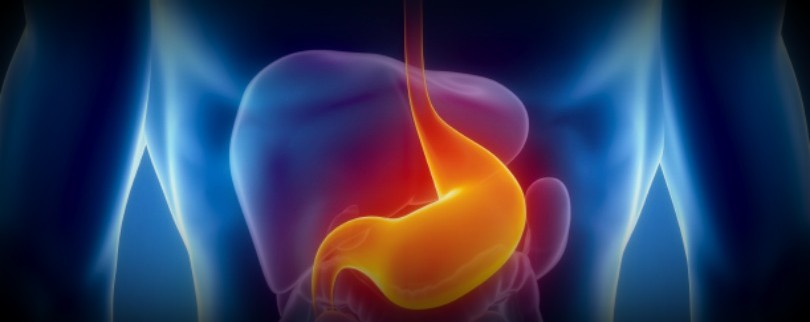Heartburn

Heartburn or gastro-esophageal reflux (latin: pyrosis) is a symptom that manifests unpleasant tingling or annealing behind the lower part of the sternum, which is gradually spreading through the esophagus up to the throat. Heartburn occurs as a result of irritation of the esophageal mucosa by gastric acid, primarily due to muscle weakness of the lower esophageal sphincter (LES), which protects the distal part of the esophagus from the effects of the stomach contents. Heartburn is the basic and most common symptom of gastroesophageal reflux disease (GERD). GERD is the most common disease of the esophagus and digestive tract in general, and it is also one of the most common health problems of today and is a condition that occurs when there is reflux of gastric contents into the esophagus, which causes serious symptoms or complications. Some degree of reflux exists in healthy people, and it is considered a health problem only when it affects the quality of everyday life.
There is hardly a person who from time to time, usually after heavy meals, alcohol, tobacco, spices, coffee, or too much fat intake, experienced reflux of stomach acid into the esophagus, which can cause a burning sensation behind the breastbone, which can extend to the throat and mouth. Sporadic and occasional reflux of stomach contents is considered normal, but if it becomes chronic and intense heartburn turns into GERD, when it is necessary to carry out a very detailed diagnostics and treatment.
Heartburn is described as a feeling of “burning” behind the breastbone which can sometimes occur in the throat. It usually develops after a meal (30 minutes to an hour), increase of the abdominal pressure or at night when lying down. Heartburn can be triggered by bending down (especially during tying shoelaces or in the course of performing the exercises), but there is a subgroup of patients who have a severe heartburn in a standing position. Heartburn as the primary symptom of GERD has a high sensitivity and specificity in the diagnosis. It is believed that if the symptom of heartburn happens two or more times a week, which seriously disrupts the quality of life, its sensitivity and specificity in the diagnosis of GERD increases significantly. It is precisely this frequency of heartburn that indicates a necessity for medical consultation and eventual implementation of detailed diagnostic procedures.
The sensing of heartburn can be caused by numerous disorders that lead to increased secretion of hydrochloric acid and the weakening of the function of the lower esophageal sphincter, such as:
| The reasons for the emergence of heartburn |
|---|
| emotional tension (within psychosomatic disorders) |
| abuse of tobacco (smoking) |
| fast food and swallowing air during meals |
| chewing food inadequately |
| lying on his stomach after eating |
| increased pressure in the stomach, eg. overfilling the stomach, wearing tight clothes |
| pregnancy due to increased pressure of the uterus on the stomach |
| obesity |
| abuse of alcohol, spicy, sour and bitter foods |
| after the use of some drugs |
| herniation of the stomach (hiatal hernia) |
Observing only heartburn in Europe and North America as the leading symptom of GERD, indicated that over 44% of people have heartburn at least once a month, and that GERD as a clinical condition occurs in about 20-40% of the population over a period of 6 to 12 months. On the other hand, this population feels heartburn at least 12% of one week, while 5% feel it every day. Number of newly diagnosed patients with monthly symptoms of heartburn in Europe varies from just 5% in Switzerland to over 30% in Finland. At the global level, heartburn once a month feels as much as 36% of the world population, while 7% are feeling it daily. Today it is considered that about 20% of the adult population suffers from heartburn every day.
The occurrence of heartburn in its initial stage can be prevented by these measures:
| Prevention heartburn |
|---|
| Good, slow chewing and swallowing food into smaller boluses |
| Frequent food intake in small quantities |
| Reduction of body weight |
| Wearing loose-fitting clothing around the waist |
| Avoiding stressful situations |
| Avoiding entries: sweet milk, mints and chewing gum, garlic, hot pepper, tomato, sweet carbonated drinks and coffee, candy, lemon and orange juice, fatty foods, industrial fruit juice, chocolate etc. |
Symptoms
- Heartburn
- Regurgitation
- Difficulty Swallowing (Dysphagia)
- Noncardiac Chest Pain
- Extraesophageal Symptoms of GERD
- Epigastric and Right Subcostal Pain
Lexicon
Patients Informations
Soon
If you have more questions contact us:
info@refluxcentar.com

 српски
српски

